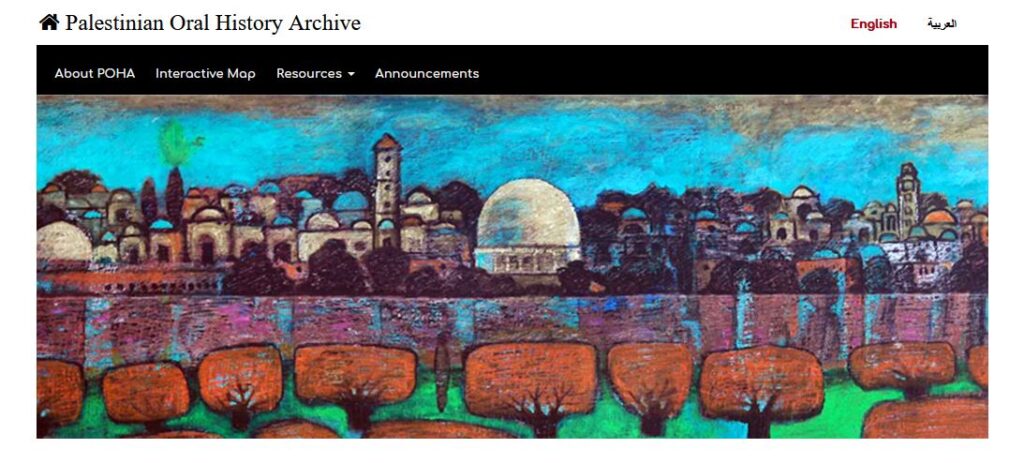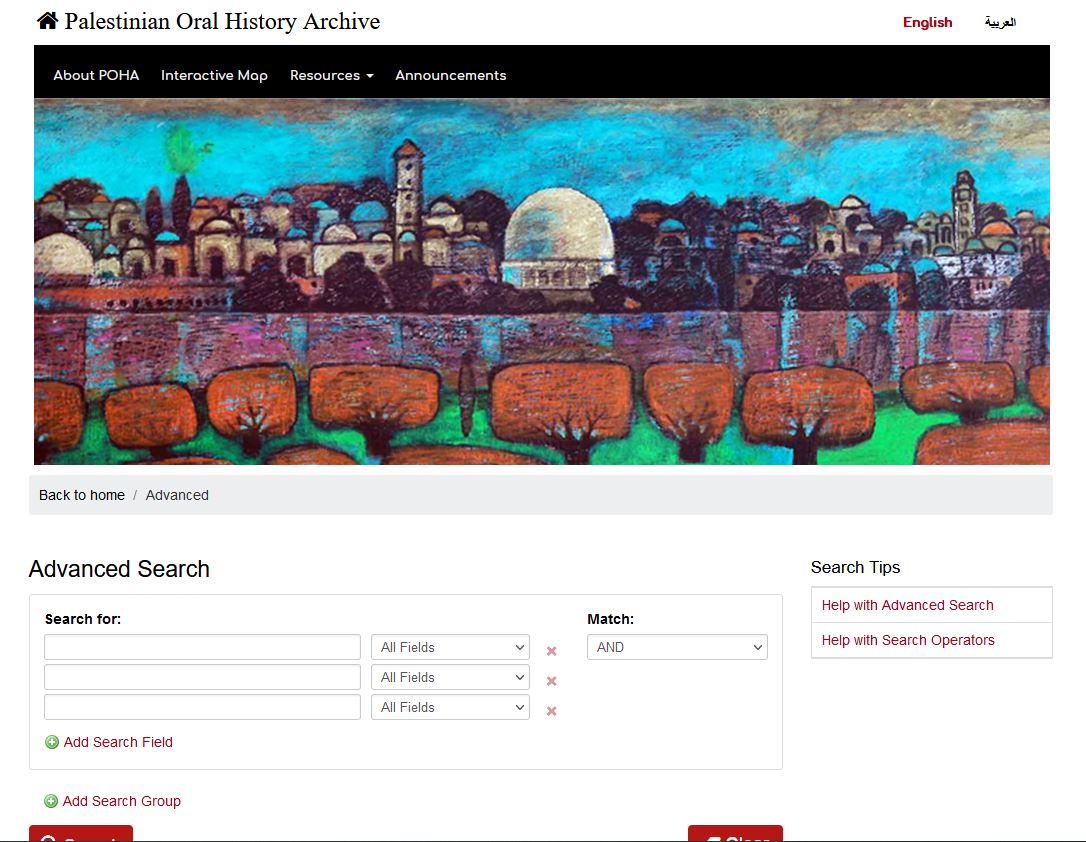
The POHA project was launched in 2011 and is based at the American University of Beirut (AUB). This project is a “collaboration between the AUB Libraries, the Issam Fares Institute for Public Policy and International Affairs (IFI), the Nakba Archive and the Arab Resource Center for Popular Arts (AL-JANA).”
The Palestinian Oral History Archive digitizes, indexes, catalogues and provides access to over one thousand audio and video testimonies by Palestinian refugees in Lebanon.
Through producing a multi-media database of audio-visual interviews, testimonies and life stories, this project aims to document and preserves the collective experience of Palestinians about Nakba (1948-49) where 750,000 Palestinians were displaced and forced to their neighboring Arab countries.
The beginning of this project goes back to mid- 1990s when Nakba Archive and the Arab Resource Centre for Arts (AL-JANA) started to collect and document these testimonies, by interviewing the members of the first-generation Palestinians refugees in Lebanon. Creation of more than eight hundred video and audio testimonies was the result of their work, which later was incorporated into one collection by POHA.
The value of Oral history collections resides in the fact that it allows for learning about the perspectives and individuals’ narratives that otherwise might not have a voice or not being recorded in the history. (WALBERT, 2011)1. Moreover, at times in history, interview is the only source for collecting information about a place, event or individuals. (Baylor University, 2012)2.
As such this collection is an important resource and Sleiman and Chebaro (2018)3 also mentioned:
This collection is important because it provides a unique primary source on perspectives that are almost not recorded or acknowledge officially. Moreover the oral history gives voice to more people and includes marginalized populations as well as the ordinary people. Palestinian oral history collections have immense potential to contribute to a new historiography of the Nakba since they provide a unique primary source that captures perspectives rarely recorded or acknowledged in official narratives.
POHA organized the collection into four categories:
“1.Uprooting,” constituting the majority of the collection, comprises the entirety of the Nakba Archive series (558 hours of video recordings) and a part of AL-JANA’s (136 hours of audio recording). Here, the focus is on the refugees’ experience of mass displacement during the Nakba, their “uprooting”; this section also comprises accounts of life under the British Mandate and during the 1948–49 war, including the experiences of exile and displacement in Lebanon.
“2.Folktales” (172 hours of audio interviews) encompasses pre-1948 elements of intangible culture in the form of Palestinian folktales, storytelling, traditional songs, proverbs, and poems.
“3.Ayn al-Hilwat” comprises 36 hours of video recordings of women from the ‘Ayn al-Hilwah refugee camp in South Lebanon talking about their occupations, their family lives, and their roles in the establishment of the camp.
“4.Biographies” includes 160 hours of audio, recording the life stories of men and women who played important roles in their communities, or served as models and inspiration there.”
Access the collection from here : https://libraries.aub.edu.lb/poha/Search/Advanced
The interviews are thoroughly indexed and are searchable. Each entry is fully catalogued and has the proper subject(s). Furthermore, each entry has all the details such as the name of the interviewer, interviewee, the duration of the interview and etc.
- Walbert, Katheryn, 2011. The value of oral history http://baltimoreuprising2015.org/oralhistorytraining/wp-content/uploads/2019/07/Reading-Sheet-1-Lesson-4.pdf Accessed 26 October 2022.
- Baylor University Institute for Oral History (2012). Understanding oral history: Why do it? Baylor University Institute for Oral History: http://www.baylor.edu/oralhistory. https://www.baylor.edu/content/services/document.php/66420.pdf Accessed 26 October 2022.
- Hana Sleiman & Kaoukab Chebaro (2018) Narrating Palestine: The Palestinian Oral History Archive Project, Journal of Palestine Studies, 47:2, 63-76, DOI: 10.1525/jps.2018.47.2.63


